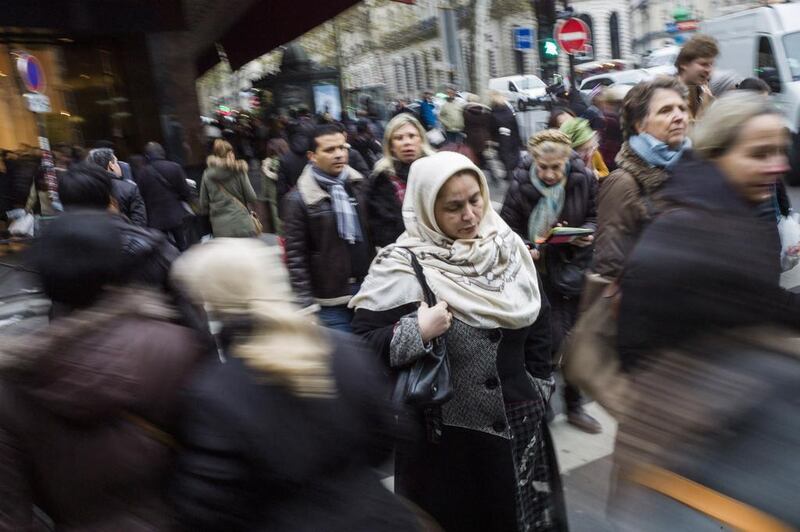For twelve years, I have been speaking publicly about the hijab. But it feels like no-one is listening.
My first ever media interview was live on the BBC’s flagship news programme Newsnight in 2005. The topic was the banning of veils.
I spoke in defence of the right of women to dress as they choose, and to highlight that Muslim women, their clothing and their right to self-determination were being attacked as a symbol of a wider malaise with an increasingly diverse, inclusive and changing society.
On Tuesday this week the European Court of Justice ruled that workplace bans on the wearing of “any political, philosophical or religious sign” such as headscarves need not constitute direct discrimination. But, the ban must be based on internal company rules requiring all employees to “dress neutrally” and it can’t be at the behest of customer wishes.
The number of requests I received from global media channels desperate to get an opinion from Muslim women about the challenge now facing those who wear headscarves or veils was in double digits.
Twelve years on from my first media appearance – and I’m certainly not the only one that has been commenting, despite the conversation feeling like a long-term relationship between my head and a brick wall – nothing has changed in the headscarf debate.
The topic rears its head at least two to three times each year. Yet the debate remains static.
I’ve become increasingly disillusioned by the debate. The answers that Muslim women offer when given the chance to speak appear to have zero effect.
I ask myself, why is the answer we are giving you not satisfying you and changing the terms of debate?
I notice that the response is often that Muslim women can’t really think for ourselves; or that there is a mute button on our voices so we are simply not heard.
What troubles me most is the aggressive repetition of this attack, as though it will only be stopped when we throw up our hands and declare that – hallelujah! – we have seen the error of our ways and discarded our chosen attire.
That you will only stop when we have become women under your rules. You will free us from what you have labelled our oppression by dictating what we should be.
Everyone is busy telling Muslim women what they should wear. There are other things to worry about than a scarf. It does not threaten anyone’s security, civilisation or democracy. If you haven’t heard it enough from so many women like me who’ve been speaking about this for years if not decades then you need to actually start listening rather than pretending you really care about saving us.
I’m suffering the recurring condition called Headscarf Spokesperson Fatigue Syndrome.
You may say, why not do it? It’s important to have voices heard, and I agree, it is. But this takes a deep emotional toll. It’s draining to say the same thing again and again. And again and again. Over the last 30 years the debate has moved no further forward. Is anyone really listening?
Why bother to invest time and emotional energy in commenting when it clearly has zero effect? I prefer to move onto investing my time where I do see an effect. Isn’t that just effective use of resources?
Being reduced to Headscarf Spokesperson also has a deep and profound effect on my sense of self. I am more than my headscarf. Yet I’m constantly limited to it.
I’m blamed for being reduced to a headscarf because I choose to wear it. I also wear socks and jeans.
To those who discuss headscarves endlessly because it seems like their very civilisational construct is affected by my pink silk swishy scarf, I ask, why does it bother you so much? I’m not making you wear it. I’m not making you discuss it. I ask for the same courtesy in return.
Let me make the resolution of this issue easy for you. I choose to wear a scarf, you might not. Both are OK. Now shall we talk about some real issues in the world?
Shelina Janmohamed is the author of the books Generation M: Young Muslims Changing the World and Love in a Headscarf
On Twitter: @loveinheadscarf





